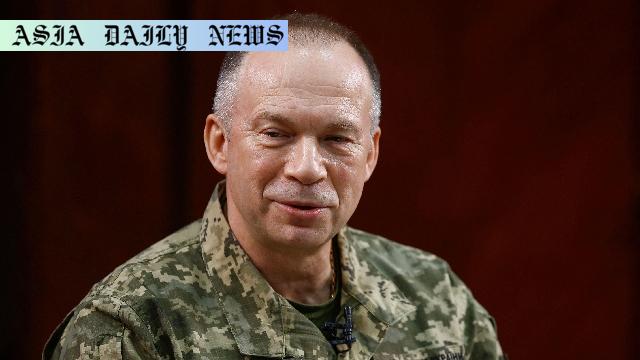Ukraine’s military claims substantial deployment of trained North Korean troops in western Russia amid ongoing conflict.
Ukraine Commander-in-Chief reports 11,000-12,000 North Korean soldiers in the Kursk region.
Trained North Korean troops participate in Russian offensives during ongoing border clash with Ukraine.
Ukraine claims nearly half of the deployed North Korean forces have been incapacitated.
The Ukrainian military highlights cases of Russian use of prohibited chemical ammunition.

Deployment of North Korean Troops in Kursk
Ukraine’s military Commander-in-Chief, Oleksandr Syrskyi, has revealed that a significant contingent of North Korean soldiers has been mobilized to support Russian forces in the Kursk region of western Russia. According to Syrskyi, between 11,000 and 12,000 trained and fairly motivated North Korean troops are actively partaking in offensive operations against Ukrainian forces. This revelation sheds light on the expanding scope of international involvement in the ongoing conflict.
The Role of North Korean Troops
The North Korean soldiers are reportedly trained and combat-ready, taking strategic advantage of their considerable numbers during cross-border operations. Despite facing critical shortages of ammunition, Ukrainian forces have continued to challenge these units. Syrskyi emphasized that nearly half of the deployed North Korean troops have sustained injuries or fatalities, highlighting the intensity of the confrontations in the region. The involvement of North Korean troops signals an increasingly multifaceted military strategy on Russia’s part.
Allegations of Chemical Weapons Use
In addition to the military dynamics, Ukraine’s General Staff of the Armed Forces accused Russia of employing chemical munitions in its offensive efforts. The General Staff reported 434 instances of the use of banned chemical weapons in December alone and nearly 5,400 similar cases since February 2023. These allegations raise serious concerns about Russia’s adherence to international treaties, including the Chemical Weapons Convention, of which it is a signatory.
Global Implications of the Conflict
The presence of foreign forces, like North Korean troops, deepens the complexity of the Russian-Ukrainian conflict. It highlights a shift in dynamics where non-conventional alliances may shape the course of warfare. Meanwhile, Ukraine’s accusations regarding chemical weapons bring renewed attention to the significance of enforcing global war conventions and holding violators accountable. These developments urge the international community to scrutinize and address the escalation and its humanitarian impact.
Challenges Faced by Ukraine
For Ukrainian forces, limited resources and the deployment of foreign troops by Russia pose substantial challenges. The lack of sufficient ammunition has a direct impact on their capacity to neutralize foreign units effectively. Moreover, the use of chemical weapons further compounds the risks faced by soldiers and civilians alike. Nevertheless, Ukraine remains steadfast in its efforts to counteract these war tactics, rallying international support for its sovereignty and defense efforts.
Looking Ahead
The deployment of North Korean troops on Russian soil and the alleged use of chemical weapons set a troubling precedent. These developments underscore the need for international dialogue and action to prevent further violations of war ethics and conventions. The ongoing conflict demands a concerted global effort to mediate and resolve tensions in the region while ensuring accountability for actions that breach international law.



Commentary
The Global Implications of North Korean Troops in Kursk
The revelation about North Korean troops operating in the Kursk region of Russia introduces an unsettling dimension to the ongoing conflict between Ukraine and Russia. It highlights the extent to which geopolitical alliances are shifting in real-time, giving rise to new uncertainties and fears about prolonged conflict and global stability. The deployment of trained and motivated foreign military forces in a regional clash sets a dangerous precedent for international conflict dynamics.
Ukraine’s Struggles Highlight the Need for Support
Ukraine’s challenges, from ammunition shortages to battling accusations of chemical weapons usage, further underline the need for substantial international support. The claims about chemical munitions use by Russia are particularly alarming, raising ethical and humanitarian concerns that extend far beyond the battlefield. The international failure to address such violations undermines the effectiveness of global conventions designed to maintain order and deter these actions.
The Responsibility of the Global Community
The current scenario is a wake-up call for the global community to reassess its role in conflicts like this one. Support, whether through diplomatic efforts or tangible resources, is crucial to maintaining the balance of power and ensuring the long-term integrity of human rights laws. Nations must collectively address the risks posed by the involvement of external actors and the use of banned weapons, ensuring accountability and setting robust deterrents for similar actions in the future.